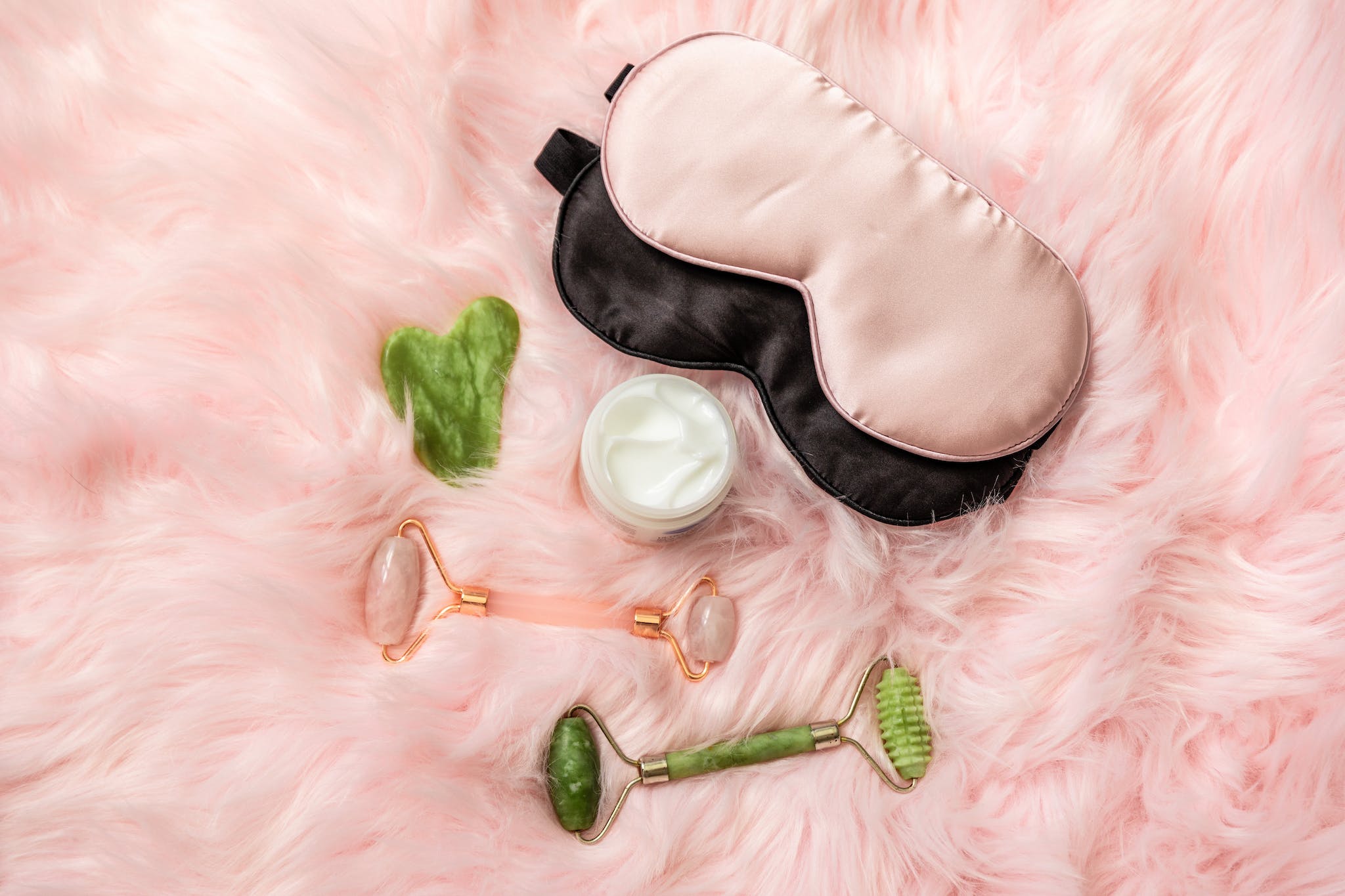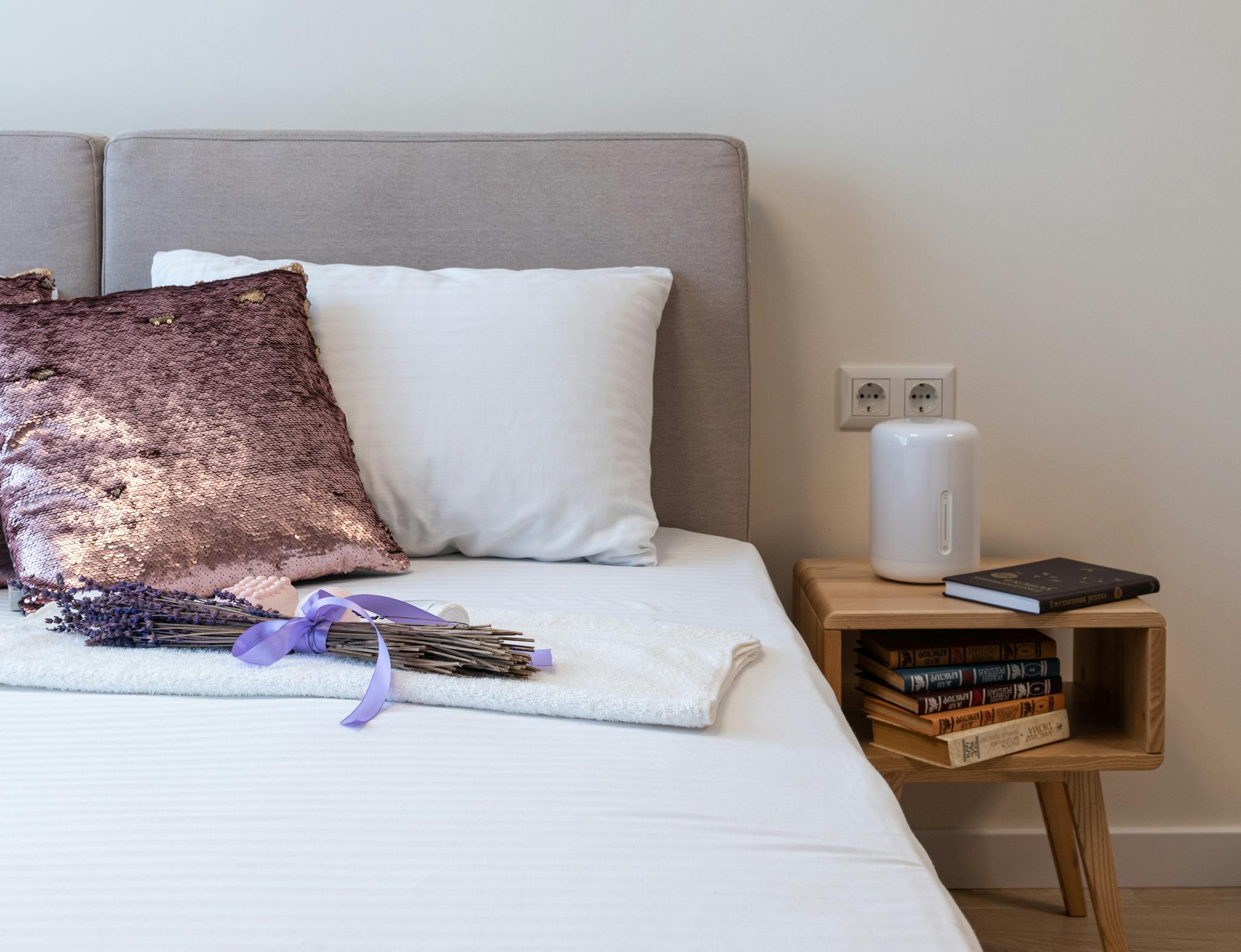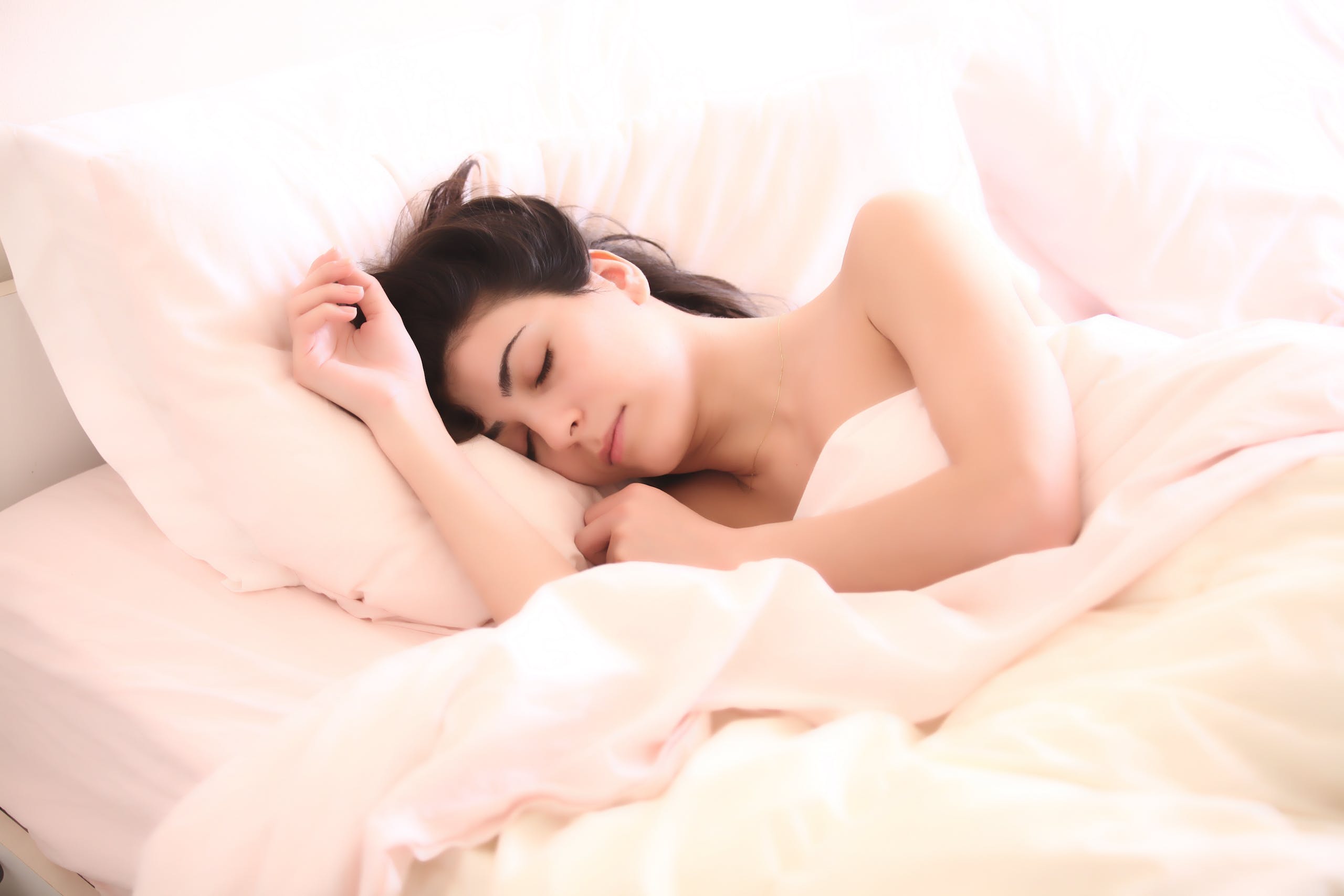Exploring The Link Between Exercise And Better Sleep
There are some affiliate links below, but they are all products I highly recommend. For more info, view my disclosure here.
Are you having trouble getting a good night’s rest? Have you tried exercising more to improve your sleep but don’t know how? Then you’re in the right place.
We’ll be exploring the link between exercise and better sleep. We’ll look at the benefits of exercise and how it can help you sleep better. We’ll also discuss the types of exercise that are most effective, as well as how to maximize its positive effects.
We’ll look at how exercise can affect sleep patterns and sleep disorders, and how to find the right balance of exercise and sleep. If you’re ready to get started, let’s explore the link between exercise and better sleep.
Understanding the Benefits of Exercise
You may be wondering how working out can help you rest easy at night; understanding the benefits of exercise can help you find out! Exercise helps the body to relax by reducing stress hormones and releasing endorphins. Endorphins are chemicals that make you feel calmer, happier and more relaxed. This can lead to better overall sleep.
Exercise can also help to reduce anxiety and depression, both of which can interfere with sleep. Regular exercise can help to increase the amount of deep sleep you get, which is important for proper rest.
Regular exercise also helps to strengthen your body’s natural sleep/wake cycle, making it easier to fall asleep when it’s time to rest and wake up feeling more refreshed in the morning. Exercise can also help to tire you out so you’ll be more ready to sleep when it’s time. Plus, if you’re feeling tired during the day, taking a short walk or doing some light stretching can help to give you a boost of energy.
Exercise can also help to improve your overall health. Regular physical activity can help to reduce your risk of heart disease, diabetes, obesity, and other chronic illnesses. This, in turn, can help to improve your sleep quality, as these conditions can interfere with your sleep. Exercise can also help to improve your mood and overall well-being, which can make it easier to fall asleep and stay asleep throughout the night.
By understanding the benefits of exercise, you can see why it’s so important for better sleep. Exercise can help to reduce stress, improve your body’s natural sleep/wake cycle, and improve your overall health. All of these things can help to ensure that you get the restful sleep you need.

Types of Exercise That Improve Sleep Quality
When it comes to getting a good night’s rest, certain types of physical activity can be a major help.
Aerobic exercise, like jogging or swimming, can be great for promoting better sleep. It doesn’t have to be at a high intensity either – just going for a brisk walk can get your body ready for a night of good sleep.
Strength training is another form of exercise that can have a positive impact. Working your muscles can help you release tension and promote relaxation, which is great for getting to sleep and staying asleep.
Yoga is another great option, as it encourages relaxation and mindfulness, both of which can help you get the restful sleep you need.
The timing of your exercise can be just as important as the type. Working out too late in the day can increase your energy levels and make it harder to fall asleep. The best time to exercise is early in the day or in the afternoon. This way, you can burn up any excess energy and give your body time to wind down before bed.
It’s also important to be mindful of your body’s needs. Don’t overwork yourself – if you’re feeling overly tired or sore, then it’s time to take a break. This will ensure that your body is getting the rest it needs, which is essential for good sleep.
Make sure you’re getting enough quality sleep to start with. This will help you to have enough energy for exercise and a better quality of sleep.
Exercise can be a great tool for improving your sleep quality, but it’s important to find the right type and timing for you. Try out different types of exercise and find what works best for you to get the restful sleep you need.
Maximizing the Positive Effects of Exercise
Exploring the connection between physical activity and restful sleep can help maximize the positive effects of exercise.
Making sure to exercise regularly, but not too close to bedtime, can help ensure you’re getting the best night’s sleep possible. Consider the type of exercise that’s best for you.
Some people may find that vigorous aerobic activity is too stimulating, while others may enjoy a more moderate approach. Try a few different activities and see which works best for you.
It’s also important to focus on good nutrition before and after exercise. Eating a balanced diet full of fruits, vegetables, and healthy proteins can help fuel your body and ensure you’re reaping the full benefits of exercise.
Ensuring your body is hydrated throughout the day can help with energy levels and sleep. Replenish electrolytes with a sports drink or coconut water after a workout, and consider a light snack before bed.
It can be helpful to focus on conscious relaxation techniques to help your body wind down after a workout. Incorporate mindfulness into your exercise routine, or take time to stretch and breathe deeply in order to reduce stress and tension in the body.
Consider taking a warm bath or shower before bed to further help your body relax and prepare for sleep.
By incorporating these tips into your exercise routine, you can help maximize the positive effects of exercise and ensure restful sleep. Exercise can be a powerful tool to improve your overall health, so make sure you’re taking the necessary steps to reap the full benefits.
Exercise and Sleep Patterns
Exercising regularly can have a huge impact on your sleep patterns and overall wellbeing.
Studies have found that engaging in physical activity during the day can help improve the quality of your sleep.
Exercise helps regulate your body’s natural sleep-wake cycle, which leads to feeling more energized during the day and sleepy when it’s time for bed.
Regular exercise can also reduce the amount of time it takes for you to fall asleep.
Regular exercise can also make your sleep more restful and restorative.
Exercise releases endorphins, which can naturally improve your mood and reduce stress.
When you are less stressed, you are less likely to wake up in the middle of the night.
Exercise helps to increase the length of time in deep sleep, which is the most restorative stage of sleep.
It’s important to note that exercising too close to bedtime can have an opposite effect and make it harder for you to fall asleep.
That’s why it’s recommended to exercise at least 3 hours before going to bed.
This can help you to regulate your body’s internal clock, as well as give you time to wind down and relax before bed.
The key to getting the most out of your sleep is finding the right balance between sleep and exercise.
If you exercise regularly and maintain a healthy sleep schedule, you’ll be able to get the most out of both activities and reap the benefits of improved quality of sleep.
Exercise and Sleep Disorders
Understanding the connection between exercise and sleep disorders can help you make sure you’re getting the restful sleep you need.
Many people who exercise regularly find that it helps them sleep better. However, people who exercise too much or too intensely can actually lead to an increase in sleep disturbances.
Those who do too much or too intense exercise can find that their bodies become overstimulated and unable to relax, resulting in difficulty sleeping. Find a balance between the amount and intensity of exercise that you do.
While some people can benefit from exercise when it comes to sleep disorders, others can actually experience a worsening of their symptoms.
For example, people who suffer from insomnia may find that exercise can actually make their insomnia worse. This is because they may become overstimulated and have difficulty winding down their body and mind at the end of the day.
Talk to a doctor or healthcare provider if you think that exercise may be affecting your sleep.
Those with other sleep disorders such as sleep apnea or narcolepsy can also benefit from exercise. Regular exercise can help improve the quality of sleep for those with sleep apnea, as it can help reduce the severity of apneic episodes.
Exercise can also help regulate the body’s circadian rhythms, which can help those with narcolepsy better manage their sleep patterns.
In order to make sure that you are getting the restful sleep that you need, understand the link between exercise and sleep disorders. Finding the right balance of exercise can help improve your sleep and overall health.
Speak to a doctor or healthcare provider if you think that exercise may be affecting your sleep.

Strategies for Balancing Exercise and Sleep
Balancing exercise and sleep can be challenging, but with the right strategies, you can ensure you’re getting the restful sleep you need.
One of the most important things is to get enough sleep each night. Aim for 7 to 9 hours of sleep each night and be consistent with your bedtime. This will help your body stay in a regular sleep-wake cycle and make it easier to fall asleep at night.
Making exercise part of your daily routine can help you sleep better. Try to exercise at least 30 minutes a day at a moderate intensity, like walking or jogging. Exercise can help reduce stress, which can interfere with quality sleep. Avoid exercising too close to bedtime, though, as it can make it harder to fall asleep afterwards.
Sticking to a regular sleep schedule can also help you get a good night’s sleep. Go to bed and wake up at the same time every day, even on weekends. This will help your body know when it’s time to sleep.
Avoid looking at screens for at least an hour before bedtime, as the blue light from screens can interfere with your body’s natural sleep cycle.
Creating a relaxing environment before you go to bed is also important. Make sure your bedroom is dark, quiet, and comfortable. Try taking a warm bath, reading a book, or doing a relaxing activity before bed to help you relax and prepare for sleep.
With the right strategies, you can balance exercise and sleep and get the restful sleep you need.

The evidence is clear: exercise can have a positive impact on your sleep. Regular physical activity can help you fall asleep faster, sleep more deeply, and wake up less often during the night.
Not only that, but exercise can also reduce the severity of insomnia and other sleep disorders. So make sure to include exercise as part of your daily routine and get the restful sleep you deserve.
It can take some time to find the right balance between exercise and sleep, but it’s worth it. As long as you listen to your body and don’t overexert yourself, you’ll be able to reap the many benefits of physical activity and peaceful slumber.
Give it a try and see just how much better you’ll feel!






